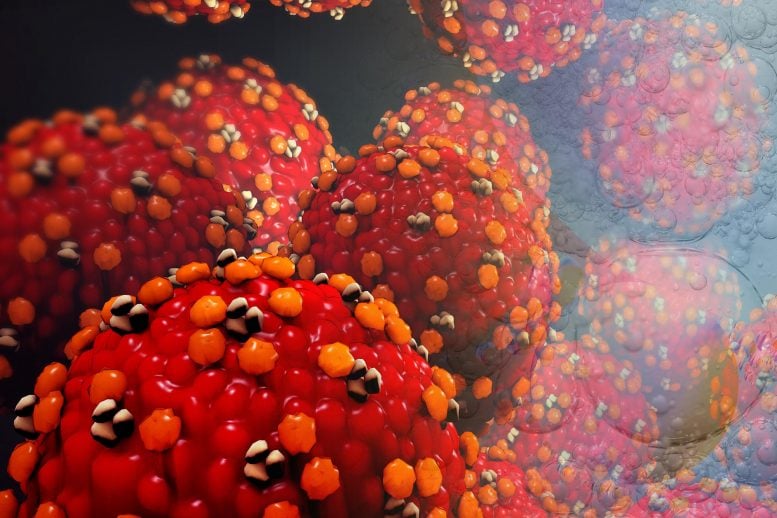
Constantly being told to wash your hands? Us, too. So we’re diving into the chemistry behind why soap is so effective against viruses like the coronavirus that causes COVID-19.
[PALLI] and yeah, they break up all the non-covalent interactions, and the whole virus just falls apart, like a house of cards.
[SAM] Hi everyone!
So we are trying to get more videos out to you, but right now our entire team is practicing social distancing and working from home.
So that makes it kinda tricky making our normal videos.
With that said, we still wanted to bring you some good information on the science of what’s happening with COVID-19.
So I found that everyone seems to be talking about soap, and the importance of soap. And so I wondered, is it actually that effective against viruses, or this virus in particular,
and, if so, why?
Those questions lead me to a chemist in New South Wales who’s an expert on the topic. His name’s Palli Thordarson, and he’s insanely busy right now. So I was fortunate that he took a bit of his time to talk with me.
[PALLI] It’s been quite a media storm, too. So I think I’m up to 3 radio interviews, 1 TV, and probably about half a dozen of these what we are doing, so
[SAM] Alright, well, thank you Palli for chatting with me. Actually I found you, initially, by seeing a twitter thread about why soap is so good at killing viruses.
So first off, I guess we’ll just get right into it, why is soap so good at killing viruses?
[PALLI] Because it completely destabilizes all the non-covalent interactions that hold the virus together.
[SAM] So when Dr. Thordarson says that hand soap ‘destabilizes non-covalent interactions that hold viruses together’ what he’s saying is that the components of a virus are just not that tightly bound to each other.
So with covalent bonding, for instance the bonding that you would see between carbon atoms in a diamond, you have this sharing of electron pairs. And that makes for much stronger, stable bonds.
But in the case of viruses, you have these non-covalent interactions, they’re much weaker, and they include things like hydrogen bonding and Van der Waals forces.
[PALLI] What you have is first an RNA that self assembles with several protein units. The whole cluster is just held together by hydrophobic, and charge, and hydrogen bonding
interactions between the protein units and the RNA. There’s no covalent bonds linking all that stuff together. And then there’s a bilayer lipid membrane around the whole thing, with some proteins sticking out.
[SAM] So all viruses have a genetic component, whether that’s DNA or RNA, and they also have proteins. Some also have lipids.
Like Palli mentioned, they self-assemble into a new virus, and then that virus can go on to infect more of your cells.
When viruses have lipids around the outside, in what’s called a lipid bilayer, those viruses are considered enveloped. So SARS-CoV-2 is enveloped, as are others like a bunch of the influenzas, and hepatitis B, and that makes a difference for how they interact with soap.
[PALLI] In the case of the virus it will stick to your hand, for instance, if you pick it up from somewhere. It’s also a little bit greasy, and that’s again, I think you can readily see as a chemist, because the surface of the skin is not that dissimilar, it’s a mixture of proteins and fat from the dead cells on top of the skin.
So you get a fairly good adhesion there. So when you just run water over the hand, the virus may not come off.
It might, but it might not, right?
When you add soap water, what happens there of course is that now we’ve got a solution full of amphiphilic molecules, whether they are synthetic or natural doesn’t really matter. And they’ll start to exchange with the membrane, stick into the membrane, and when that happens, the membrane obviously would become less stable.
And yeah, they break up all these non-covalent interactions and the whole virus just falls apart like a house of cards. So that’s why soap works so much better than running water.
[SAM] Here’s what that looks like. Hand soap is made up of molecules called surfactants. Surfactants have a hydrophilic, or water-loving end, and a lipophilic end, that likes lipids like those in the lipid bilayer of enveloped viruses, like SARS-CoV-2.
So these surfactants can actually wedge their way into the lipid bilayer, lipophilic end first, and when they do, the virus will break apart.
Surfactant molecules will come in and surround those broken down viral components. And as your washing your hands, water will come in, the hydrophilic ends of the surfactants will interact with it, and the virus will get washed away.
[SAM] So I’ve actually been riding the Metro in Washington, DC, and I think starting today I’m going to stop doing that, and I will be switching to some remote work. But I have my hand sanitizer in my bag, I use it right when I get off the Metro, walk the four blocks to work, and then immediately go into the bathroom and wash my hands with soap and water.
[PALLI] And I think we need to remember, too, that by doing that, what you’re doing, you are also helping the entire society. Sooner or later you might be unlucky and you might get sick, but just what you’ve done now has also slowed down the spread.
And that might have saved other people, because you’ve all heard about the curve now, we need to try to keep the epidemic down a little bit longer so we don’t overwhelm the hospitals.
[SAM] So we’re going to keep trying to bring you these shorter videos while we’re quarantining.
In the meantime, keep washing your hands with soap and water. The CDC recommends spending at least 20 seconds doing so.
And, most importantly, try to limit your contact with other people. The more that we’re around others, the more this virus has a chance to spread.
So, stay safe, stay home if you can.

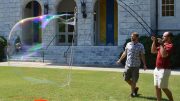
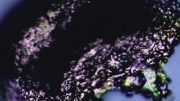
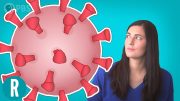
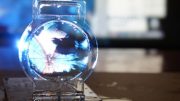
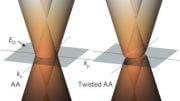
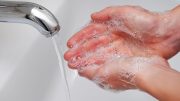
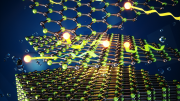

A question for the scientists!
I keep window washing sprayers around the house for sanitation; which are filled with a water, vinegar, and dish soap solution. My question is, will the dish soap in my solution do what the video describes; cause the virus to disassemble?
will soap bubbles and giant bubbles blown into the air collect any airborne corona viruses and dissolve them so that they become inert.
can we make a bubble machine to constantly making bubbles in the air to kill the Cove it virus in the air so it won’t spread. Bike indoors and hospitals and offices in restaurants